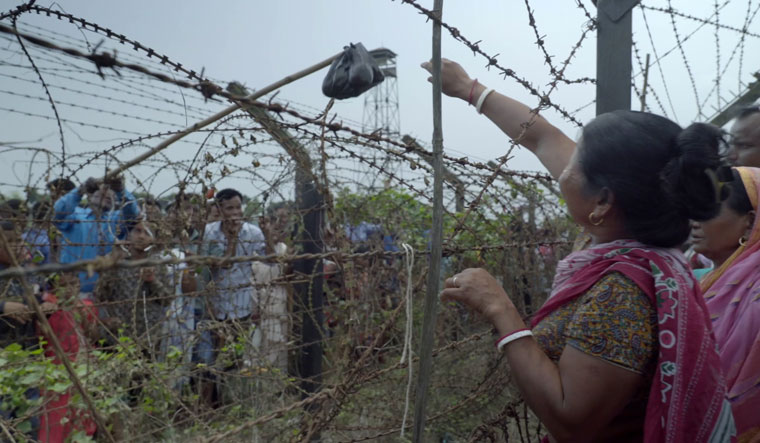What is the first thing you imagine when you think about borders? Chances are that most of us have these images of burly men in uniforms, guarding us, day and night, as they risk their own lives.
Hidden in popular debate and discourse of us versus them are stories of individuals who continue to live on the edges of our borders; whose narratives are shaped, to a large extent, by policies inside closed doors that are framed irrespective of them, yet have the biggest bearing on them.
Samarth Mahajan’s Borderlands aims to take the focus away from hyper masculinity associated with our borders, and zooms into the lives of people who live on the margins that separate two countries, and for whom the concept of a country is vapid and figurative. It is an earnest effort at presenting snippets from the lives of those who are otherwise left out of the mainstream narrative or are told largely through the perspective of nationalistic sentiment peddled by hyper-nationalism.
The documentary has travelled to multiple festivals, including the Cannes’ Marche du Film. It was the only Indian film in competition at the world premiere at DOK.fest München, one of the oldest and largest documentary festivals in Europe.
Borderlands takes us to Imphal in Manipur, Nargaon in West Bengal, Jodhpur in Rajasthan, Dinanagar in Punjab, among other places. And, the protagonist at each of these locations, except one, are women.
“We were looking at focusing on softer aspects of these border areas. Something that takes away from the toxic masculinity with which our borders are mostly associated with,” said Mahajan, who began directing the documentary in 2018. The film is a co-production between Camera and Shorts and All Things Small.
At the India-Nepal border, in the city of Birgunj, a young and lean Kavita guards against human trafficking and gender-based violence. Dressed in a volunteer’s uniform, every single day she stations herself on the main road and randomly stops passers-by to check if young girls are being tricked into crossing the porous border.
In the barren lands of Jodhpur, a young Deepa sits on a cot outside the cow dung-coated mud walls of her hut, struggling to adjust to her new surroundings in a settlement for migrants in Pakistan.
These touching, humane stories and personal narratives of daily lives of people living on the edges of India’s borderlands make Mahajan’s documentary, which he executed with an all-woman team of assistants, a gripping watch.
The team has not used a lot of text to explain the characters or the context, leaving the viewer to interpret the complexity of emotions. Shot over 200 days, with a part of the budget (almost to the tune of Rs30 lakh) crowdfunded, the film’s execution had several challenges, beginning with getting clearance from the Border Security Force across five locations. “We were very apprehensive about obtaining permissions from the BSF right from the start. Nobody gave us actual permissions on paper. It was just that the men at the borders were really friendly and made it easy for us to pull off the job. This film is about humanising issues, by keeping politics aside,” said Mahajan, an IIT-Kharagpur alumnus who left his corporate job to pursue his passion for filmmaking, and shifted to Mumbai to start pursuing his dream of making films.
Mahajan won a national award for his last documentary, The Unreserved. Deeply engaging and insightful, it is an inquiry into the lives of passengers who use unreserved compartments in trains to travel across the country.


